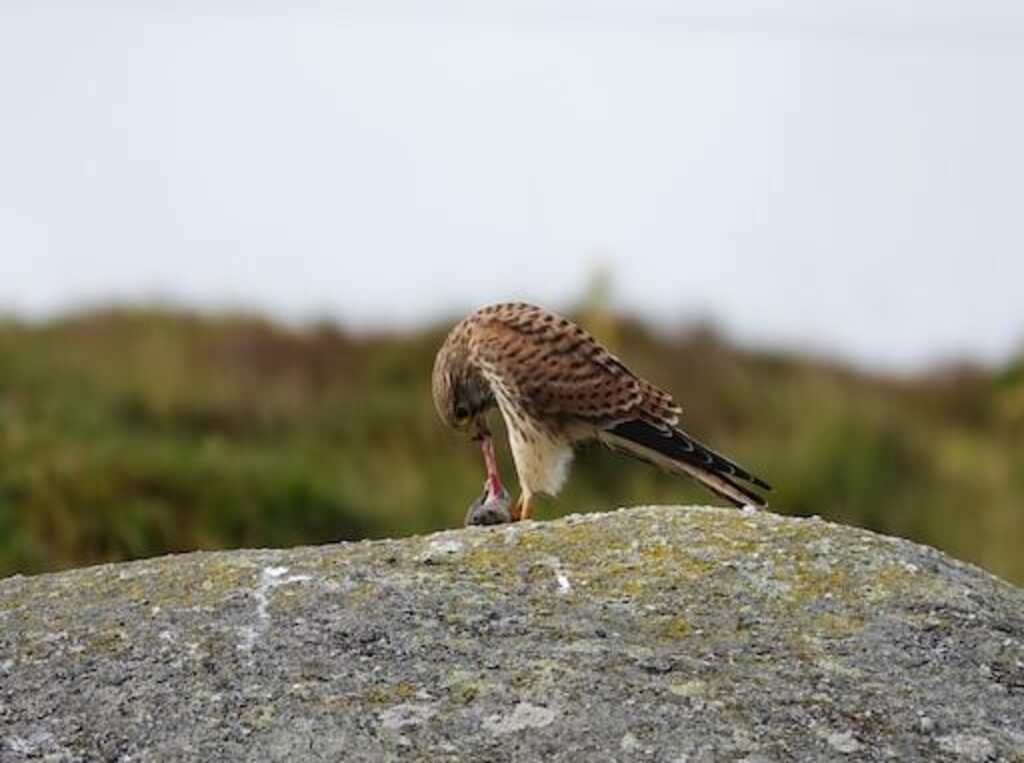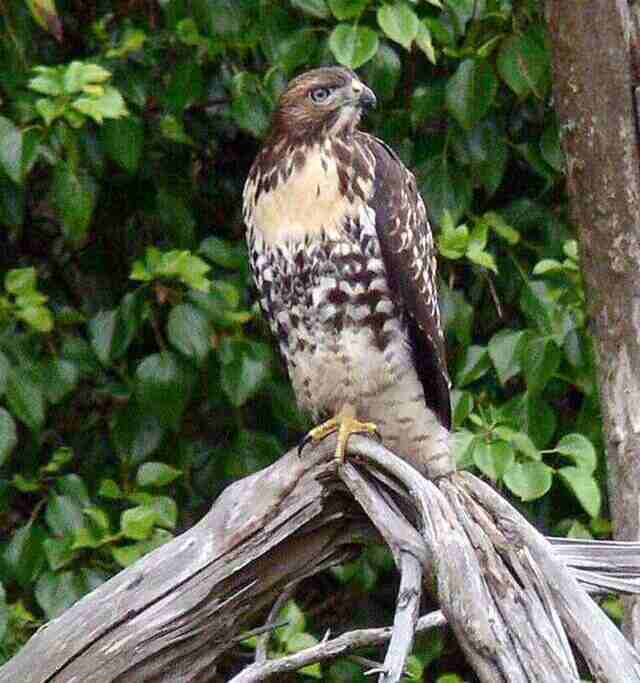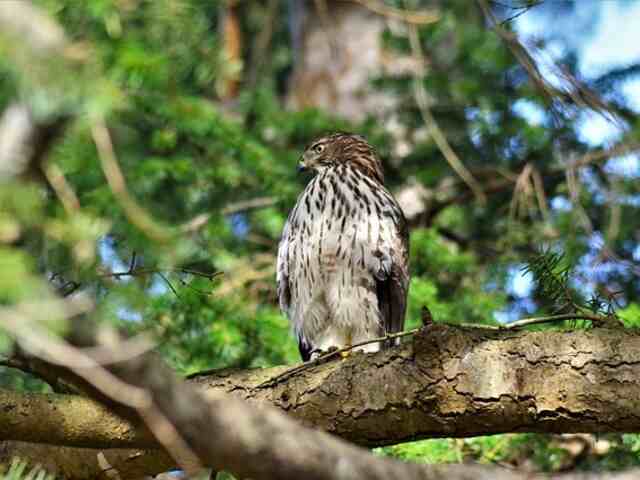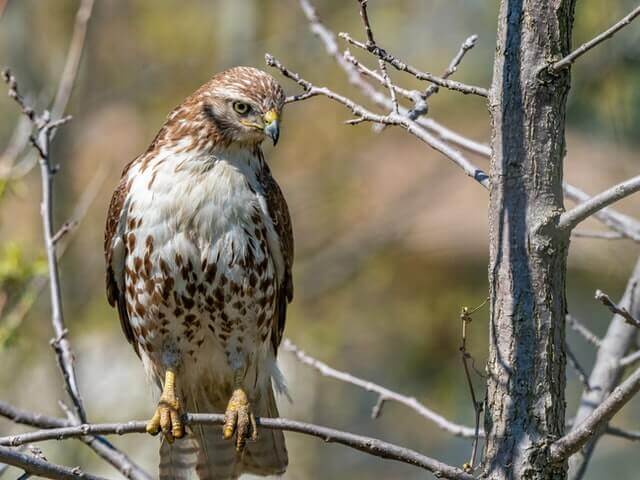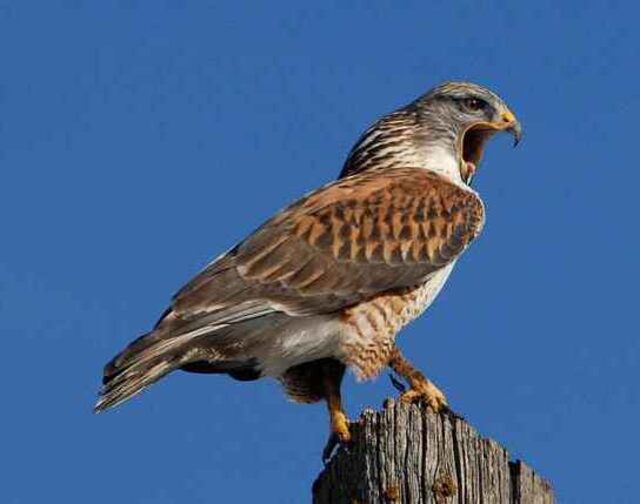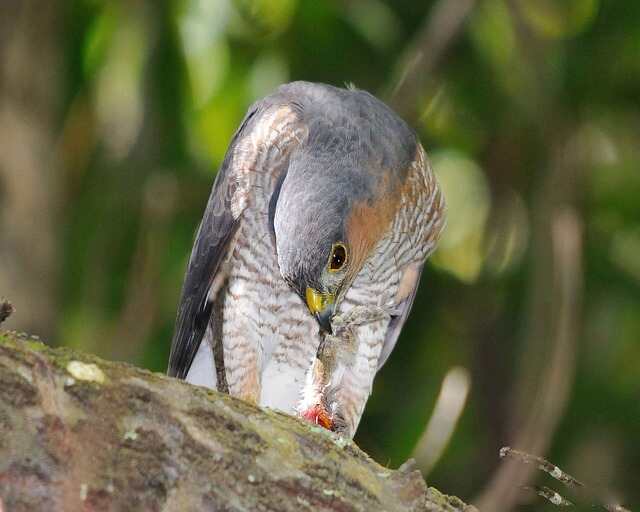“Can I Feed Hawks?” Have you ever wondered if you can offer a delicious treat to those majestic hawks soaring effortlessly through the sky?
Before you start packing a gourmet meal for our feathered friends, let’s pause for a moment. In this article, we’ll explore the dietary needs, legal implications, and potential health impact of feeding hawks.
Discover why it’s not recommended, and find alternative ways to appreciate these incredible creatures while respecting their natural feeding patterns and well-being.
Let’s dive into the world of hawk feeding etiquette and soar with knowledge!
Table of Contents
- 1 Key Takeaways
- 2 Can I Feed Hawks?
- 3 Hawks’ Dietary Needs
- 4 Legal Implications
- 5 Negative Impact on Hawks’ Health
- 6 Disruption of Natural Feeding Patterns
- 7 Risk of Human Injury
- 8 Alternative Ways to Appreciate Hawks
- 9 Educating Others
- 10 Conclusion: The Importance of Respecting Wildlife
- 11 Frequently Asked Questions
- 12 Author
Key Takeaways
- Feeding hawks can result in potential liability for both the feeder and the recipient of the food, and wildlife regulations may prohibit feeding birds of prey altogether.
- Malnutrition and disease are two major risks associated with feeding hawks, as they require a diet of small mammals, birds, and reptiles to meet their nutritional needs for hunting and flying.
- Dependence on human food can negatively impact the health and natural behavior of birds of prey, and human intervention can disrupt the natural feeding patterns of hawks, which can have ethical concerns.
- The disruption of natural feeding patterns can further exacerbate these issues, as hawks may become less adept at finding and catching prey on their own, potentially causing a ripple effect throughout the ecosystem.
Can I Feed Hawks?
Feeding hawks is not recommended. Hawks are wild animals that should be respected and allowed to follow their natural feeding patterns.
Providing food can disrupt their health, behavior, and create legal issues. Instead, appreciate hawks from a distance and support their well-being in their natural habitat.
Hawks’ Dietary Needs
Hawks require a diet of small mammals, birds, and reptiles to meet their nutritional needs and sustain their high energy levels for hunting and flying.
Their preferred prey includes rodents, rabbits, squirrels, and small birds. Hawks have a high metabolic rate and need to consume food frequently to maintain their energy levels.
They have specific nutritional requirements that must be met in order to maintain their health and well-being.
Feeding hawks can be a tempting idea for some, but it is important to understand the legal implications and potential risks involved.
In the following section, we will explore the legal considerations associated with feeding hawks.
Legal Implications
The legality of providing food for birds of prey must be carefully considered due to potential issues with wildlife regulations.
Feeding hawks can result in potential liability for both the feeder and the recipient of the food. In some cases, wildlife regulations may prohibit feeding birds of prey altogether.
Additionally, ethical considerations should be taken into account when providing food for hawks.
While it may seem like a kind gesture, it can have negative impacts on their health and natural behaviors. As such, it is important to consider all factors before deciding to feed hawks.
This leads into the subsequent section about the negative impact on hawks’ health.
Negative Impact on Hawks’ Health
The negative impact of feeding hawks extends beyond legal implications to their health. Malnutrition and disease are two major risks associated with feeding hawks.
Human food may not provide the necessary nutrients required by hawks and could lead to malnutrition, which can weaken their immune system and make them susceptible to diseases.
Additionally, regular feeding may result in a dependency on human food, which could lead to a decline in their hunting abilities and ultimately, their overall health.
Malnutrition and Disease
Malnourished birds of prey are like athletes competing in a marathon without proper training or fuel, leading to weakened immune systems and susceptibility to disease.
Preventing malnutrition and addressing disease concerns are crucial in maintaining the health of hawks.
Malnutrition can lead to a variety of health problems, including feather loss, weak bones, and even death.
Additionally, a lack of proper nutrition weakens the bird’s immune system, making them more susceptible to infectious diseases.
It is important to note that while feeding hawks may seem like a kind gesture, it can actually do more harm than good.
By providing them with an unnatural diet, we are inadvertently harming their health and creating dependency on human food.
Therefore, it is crucial to understand the negative impacts of feeding hawks and work towards addressing their nutritional needs in a way that does not compromise their health.
Dependency on Human Food
Dependence on human food can negatively impact the health and natural behavior of birds of prey. When hawks become reliant on human-provided food sources, it can create a cycle of dependency that can be difficult to break.
This can lead to malnutrition, as human food may not provide the necessary nutrients for these animals to thrive.
Additionally, human intervention can disrupt the natural feeding patterns of hawks, which can have ethical concerns.
For example, if hawks are fed by humans, they may become less likely to hunt for their own food, which can ultimately lead to a loss of natural behavior.
Therefore, it is important to consider the potential consequences of feeding hawks, as it may have long-term effects on their health and survival.
The disruption of natural feeding patterns can further exacerbate these issues, as hawks may become less adept at finding and catching prey on their own.
Disruption of Natural Feeding Patterns
Interfering with the natural feeding patterns of hawks could potentially cause a ripple effect throughout the ecosystem.
Hawks have evolved to hunt and consume certain prey, which has allowed them to survive and thrive in their natural habitat.
When humans begin to feed hawks, it disrupts this natural cycle and can lead to potential consequences such as malnutrition, disease, and a decrease in hunting skills.
Additionally, there are ethical considerations to feeding hawks, as it can create a dependency on humans for food and interfere with their ability to survive on their own.
This disruption of natural feeding patterns can also have negative effects on other species in the ecosystem, as the population of prey that hawks would normally consume could increase, leading to an imbalance in the ecosystem.
It is important to consider these factors before deciding to feed hawks, as the consequences could be far-reaching and have lasting effects.
Moving forward, it is important to understand the risks associated with feeding hawks and to make informed decisions that prioritize the well-being of both the hawks and the ecosystem as a whole.
This includes understanding the risk of human injury that can occur when feeding wild animals, which will be explored in the subsequent section.
Risk of Human Injury
The risk of human injury when dealing with hawks cannot be overlooked. These birds of prey possess sharp talons and beaks, which can cause significant harm to humans if they feel threatened or agitated.
Additionally, they may exhibit aggressive behavior towards humans, particularly if they perceive them as a threat to their territory or young.
It is essential to exercise caution and respect when interacting with hawks to avoid any potential injury.
Hawks’ Sharp Talons and Beaks
Hawks possess razor-sharp talons and beaks that are adapted for hunting and killing prey. Talon care is essential for these birds of prey, as they rely on their sharp talons to capture their prey.
Their talons are also used for gripping and tearing apart their food.
Hawks’ hunting techniques are highly specialized, and their sharp beaks allow them to precisely tear their prey into smaller pieces for easier consumption.
However, these sharp talons and beaks can be dangerous to humans, especially when they feel threatened or cornered.
Therefore, it is important to exercise caution when interacting with hawks and to avoid feeding them. In the next section, we will explore the aggressive behavior of hawks towards humans.
Aggressive Behavior towards Humans
Human safety is a major concern when it comes to the aggressive behavior of hawks. Hawks are known to be territorial birds and are known to attack humans when they feel threatened or provoked.
While there are no reported cases of hawks killing humans, their sharp talons and beaks can cause serious injuries. It is important to respect their natural behavior and avoid approaching them or their habitats.
Training techniques can be used to help hawks become more comfortable around humans, but it is important to note that these are wild animals and should not be domesticated.
Habitat preservation is also crucial in maintaining a healthy environment for hawks to thrive in their natural habitat.
As much as we may want to interact with these magnificent birds, it is important to remember that their safety and ours come first.
As we explore alternative ways to appreciate hawks, we can still admire their beauty from a safe distance.
Alternative Ways to Appreciate Hawks
One possible way to appreciate hawks without feeding them is by observing their hunting behaviors in the wild. Interacting with hawks can be dangerous, and feeding them disrupts their natural hunting instincts.
Instead, take advantage of photography opportunities to capture these magnificent creatures in their natural habitat.
Hawks are known for their impressive hunting skills, such as their ability to spot prey from great distances and their swift aerial attacks.
Observing their hunting behaviors can be both educational and entertaining.
By learning more about hawks, we can better understand their role in the ecosystem and appreciate their contributions to the natural world.
Educating others about the importance of respecting wildlife and observing them in their natural habitat can help preserve these beautiful creatures for generations to come.
Educating Others
Observing hawks in their natural habitat and educating others about their importance can be a powerful tool to promote awareness and appreciation of the intricate balance of the ecosystem.
As predators at the top of the food chain, hawks play a crucial role in maintaining the health and diversity of the ecosystem.
Educational outreach is a valuable means of informing the public about the importance of respecting wildlife, specifically raptors like hawks.
By promoting understanding and appreciation of these magnificent birds, we can help dispel negative attitudes and myths that often lead to persecution and habitat destruction.
Ultimately, we can foster a greater sense of responsibility and stewardship towards the natural world.
Public perception plays a significant role in shaping policies that affect the welfare of wildlife.
Therefore, it is essential to educate others about the significance of hawks and other raptors in the ecosystem and how we can support their conservation.
Conclusion: The Importance of Respecting Wildlife
Hawks, like all wildlife, have specific dietary needs that must be met in order for them to thrive. As such, it is not recommended to feed hawks, as doing so could have negative impacts on their health and disrupt their natural feeding patterns.
Additionally, there are legal implications and risks of human injury associated with feeding wildlife.
Feeding hawks can lead to an overreliance on human-provided food, which can compromise their nutritional intake and overall health.
It can also disrupt their natural feeding patterns, leading them to lose their ability to hunt and forage for food on their own.
Furthermore, feeding wildlife is often illegal and can result in fines or other legal consequences.
In addition to the risks involved, there are also alternative ways to appreciate hawks and other wildlife without feeding them.
Educating others about the importance of respecting wildlife and their natural habitats is a crucial step in ensuring their survival.
By observing and appreciating these magnificent creatures from a distance, we can help to preserve their natural behaviors and habitats.
It is important to remember that wildlife, including hawks, play a vital role in our ecosystem and should be respected as such.
One interesting statistic to consider is that according to a study by the National Audubon Society, 314 North American bird species are threatened by climate change.
As such, it is imperative that we take steps to protect and preserve our wildlife populations for future generations.
By respecting their natural behaviors and habitats, we can help to ensure their continued survival and the health of our planet as a whole.
| Pros | Cons |
|---|---|
| Helps animals survive | Can lead to overpopulation |
| Provides entertainment | Harms natural behavior |
| Can create bonds | Can lead to disease transmission |
| Can be educational | Can lead to negative human-animal interactions |
Frequently Asked Questions
Can I keep a hawk as a pet?
Keeping hawks as pets raises ethical considerations as they are wild animals that require specialized care and diet. It is illegal in many countries without proper permits and licensing. Furthermore, it is not recommended as it deprives them of their freedom and natural habitats.
What types of food should I avoid giving to hawks?
To ensure a nutritious diet for hawks, avoid feeding them processed foods, salted meats, and high-fat foods. Additionally, foods with high levels of pesticides or contaminants should be avoided. Providing a varied diet of fresh, whole prey is ideal.
Is it illegal to touch or handle a hawk?
It is illegal to touch or handle a hawk without the appropriate permits and training. Such regulations are in place to ensure hawk conservation and to prevent unauthorized falconry. Violating these regulations can lead to fines and legal consequences.
Can feeding hawks lead to overpopulation and a decrease in prey species?
“Too much of a good thing can be harmful” and the same applies to feeding hawks. Overfeeding consequences can lead to a decrease in natural prey species, disrupting the balance of the ecosystem. Hawks should rely on natural food sources for their survival.
Are there any risks associated with observing hawks in the wild?
Observing hawks in the wild comes with ethical considerations, especially regarding hawk feeding etiquette. Feeding hawks can lead to behavior changes and dependency, affecting their ability to hunt and survive. Adhering to ethical guidelines can minimize these risks.

